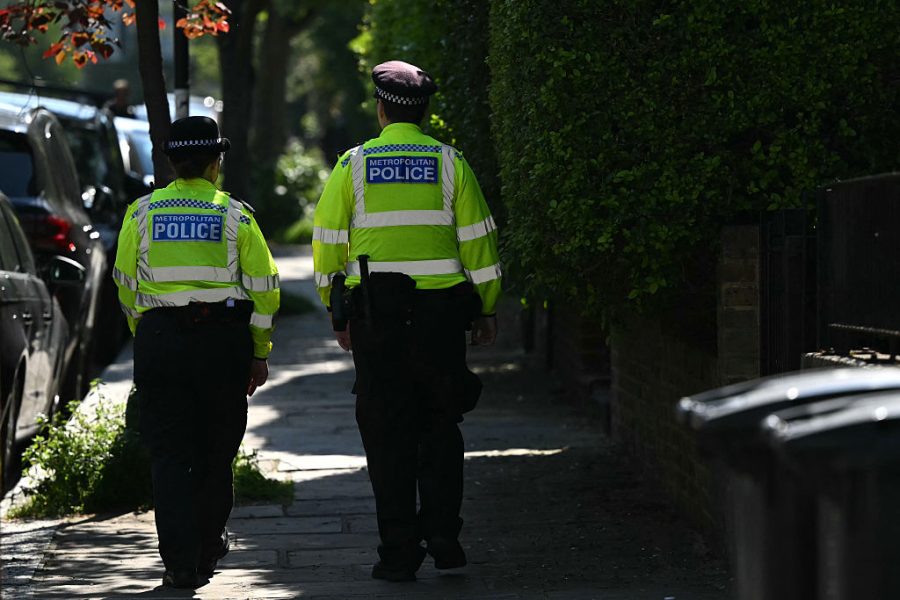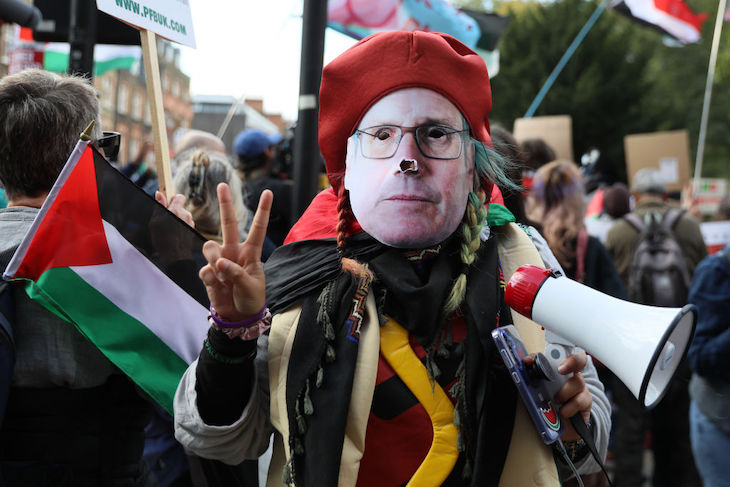Many people have been warning for some time about the perilous consequences of introducing an official definition of ‘Islamophobia’ to this country, specifically in regard to its potential to curtail free speech and reintroduce de facto blasphemy laws. But it’s taken a leading KC – an adviser to the Attorney General, Lord Hermer, no less – to remind us of a further danger: the likelihood that it will deter police from investigating Muslim suspects or offenders for fear of accusations of racism.
As reported in the Daily Telegraph today, Tom Cross KC has said it was ‘reasonable’ to
Suppose that such a definition would in practice be relied on in objecting to the use of powers by the police and security services to investigate persons who happen to be Muslim for criminal offences, including of the most serious violent or sexual nature.
Cross added that a new, state-endorsed definition of ‘Islamophobia’ could also be used to rewrite hate crime and harassment laws.
The conflation of the two categories of ‘Islam’ and ‘Muslims’ could have disastrous outcomes
His misgivings are well-founded. The current definition of ‘Islamophobia’ – as yet to be ratified by a working group commissioned in March by Angela Rayner, and headed by former Conservative attorney general Dominic Grieve KC – is fraught with future peril. This is because it fatally conflates Islam, the religion, with the ethnic minority of most people in this country raised in that faith.
As it was defined by All-Party Parliamentary Group in 2018: ‘Islamophobia is rooted in racism and is a type of racism that targets expressions of Muslimness or perceived Muslimness.’ That cynical definition sought to shield both Islam and Muslims from criticism, and there’s little reason to believe that the current working group will deviate from it when it reaches its conclusion.
This group has had a mission from the outset that has wantonly ignored the fact that laws to protect minorities already exist. Nonetheless, it was established to provide recommendations on ‘appropriate and sensitive language’ to describe ‘unacceptable treatment, prejudice and discrimination against Muslims’. Campaigners suspect that the group will proceed with the current definition of ‘Islamophobia’, and the Free Speech Union has vowed to take the government to court if Steve Reed, the new communities secretary, pushes on with it.
Despite being interrelated, the conflation of the two categories of ‘Islam’ and ‘Muslims’ could have disastrous outcomes. Should such an ambiguous definition become binding, henceforth any criticism of a Muslim could be interpreted as criticism of Islam, and any criticism of or actions in relation to someone of that faith could be construed beyond question as racist.
They could be construed as racist because most British Muslims are of Asian heritage, and because under hate crime legislation ‘racism’ today can be deemed to be entirely in the eye of the beholder. ‘Racist’ is a charge that cannot be refuted, what with a ‘hate crime’ defined as ‘any criminal offence which is perceived by the victim or any other person, to be motivated by hostility or prejudice based on a person’s race or perceived race’. The word ‘perceived’ is all-important here, and it’s no coincidence that it also appears in the original definition of ‘Islamophobia’.
‘Hate crime’ laws first appeared in earnest in the Criminal Justice Act 2003, itself a legacy of the Macpherson Report of 1999, which introduced another irrefutable accusation into the lexicon: ‘institutional racism’. That report, in response to the Metropolitan Police’s handling of Stephen Lawrence’s murder in 1993, had a catastrophic effect on policing in this country, leaving ordinary officers terrified of being accused of racism and the ruinous consequences that charge would have on their livelihoods.
That legacy continues to this day. Fear of accusations of racism has gone right to the top, as can be witnessed in the vacillating and timorous attitude at all governmental levels to stopping and searching black youths for knives. This same fear also played a crucial part in the reluctance of police forces in the north of England to investigate rape gangs consisting principally of men of Pakistani origin in the first two decades of this century.
Only last week the Independent Office for Police Conduct found that there had been ‘systemic organisational failure’ at South Yorkshire Police in regard to its inability to protect children when investigating the grooming gangs scandal in Rotherham in the 2010s: a solicitor representing survivors has described it as a ‘cover-up’. Also last week the shadow home secretary Chris Philp asked the National Crime Agency to investigate allegations that West Yorkshire Police blocked attempts to look into claims of grooming at a children’s home in Bradford.
Fear of being tarnished as racist unquestionably contributed to police reluctance to intervene and report on the grooming gangs. In future, such reluctance could be translated into outright inertia. Adding further force to that misleading neologism ‘Islamophobia’ by codifying it will only make the pursuit of justice more difficult still.







Comments